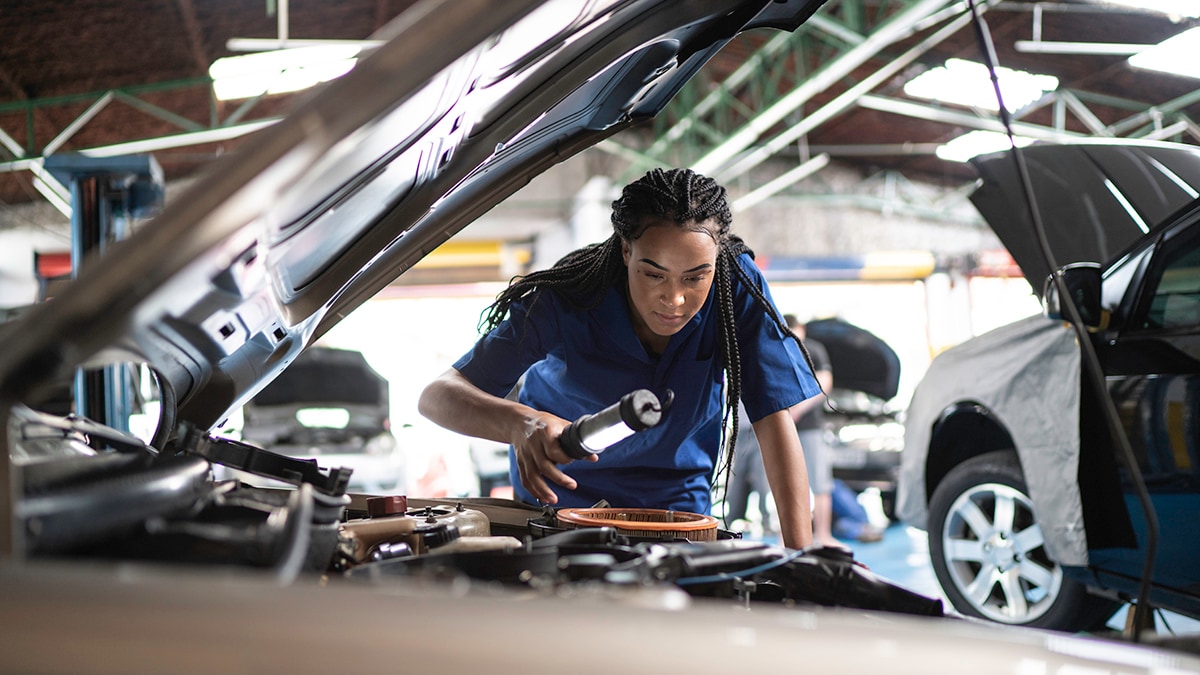Key points
- Smoke from fires, engine exhaust, or grilling contains products that can harm your health.
- Exposure to smoke and byproducts of burning can increase your chance of pregnancy and fertility problems.
- Learn more about smoke and how you can reduce your exposure.

Why I should be concerned about exposure
Smoke from fires, motor exhaust, and cooking/grilling contains several hazardous chemicals. This includes chemicals like carbon monoxide (CO) and polycyclic aromatic hydrocarbons. Smoke also contains very small particles of dust (particulates) that can get into your lungs when you breathe.
Products found in smoke may increase the risks of reproductive problems in both men and women. These include reduced fertility, miscarriage, birth defects, and neurological effects after a baby is born.
Who is at risk
Many jobs can involve exposure to smoke or byproducts of burning, including:
- Firefighter
- Pottery studio employee
- Automobile service worker
- Some manufacturing process workers
- Toll booth operator
- Restaurant or bar workers

How I can reduce or eliminate exposure
For all workers
Try to increase ventilation in your workplace to reduce exposure to smoke and burning byproducts.
If you work with smoke in a small indoor space where ventilation cannot control your exposure to smoke, you may need respiratory protection. When used correctly, respirators can reduce the amount of certain chemicals that workers breathe. Talk to your employer and healthcare provider if you think you might need respiratory protection.
Make sure you are not bringing chemicals home on work clothing or shoes. Change clothes and shoes before leaving work and wash these clothes separately from household laundry.
For pregnant workers
We do not always know what level of smoke exposure is safe for a pregnant worker or fetus.
For example, high levels of carbon monoxide exposure (where the pregnant person loses consciousness) can harm the fetus. Levels this high are unlikely to happen in most workplaces. However, we don't know whether keeping carbon monoxide exposures below limits set by OSHA will completely protect a fetus. These limits were not set specifically for pregnant people, but for healthy adult workers.
Grilling or frying in a commercial or restaurant kitchen involves much higher exposure to smoke than cooking at home. Cooking at home is generally not harmful to your pregnancy. Increasing ventilation by opening a window or using a fan while cooking at home will help keep your home healthy.
If you are pregnant and using a respirator, there are some things you should consider about respirators and pregnancy.
Resources
Getting help
Talk to your supervisor or workplace safety officer about how to reduce exposure to smoke and smoke byproducts at work.
For information on the Pregnant Workers Fairness Act, please see resources from the U.S. Equal Employment Opportunity Commission (EEOC) website.
Talk to your doctor about potential hazards at work. Make sure to mention if your job exposes you to byproducts of burning.
Where I can get more information
- Learn more about carbon monoxide
- Learn more about personal protective equipment in pregnancy
- Learn more about take-home exposures
- Learn about protecting yourself from wildfire smoke during pregnancy
- Learn about the National Firefighter Registry for Cancer at NIOSH
